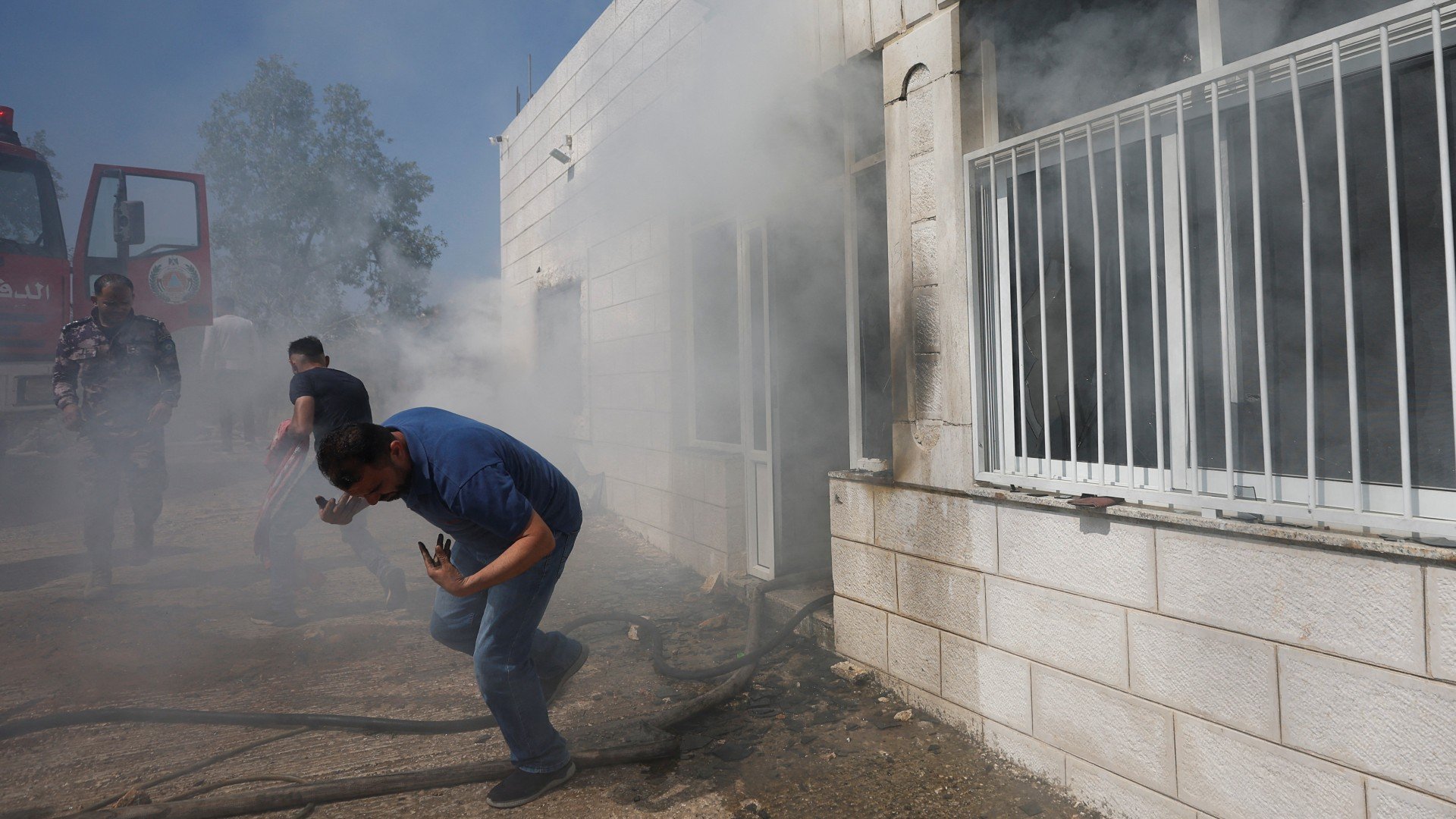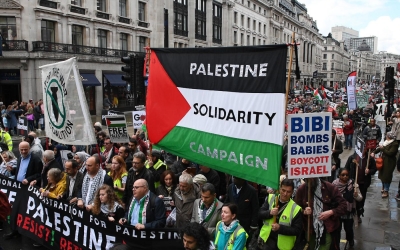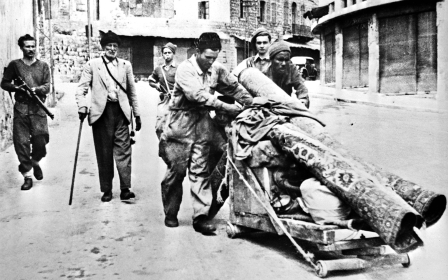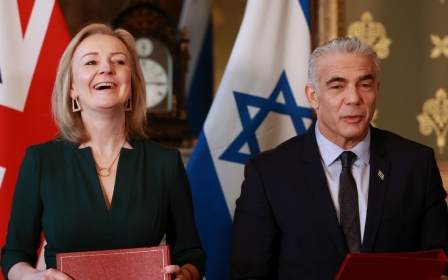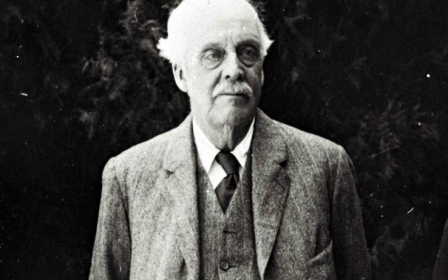Why I confronted the British consul in Palestine after settlers' deadly rampage
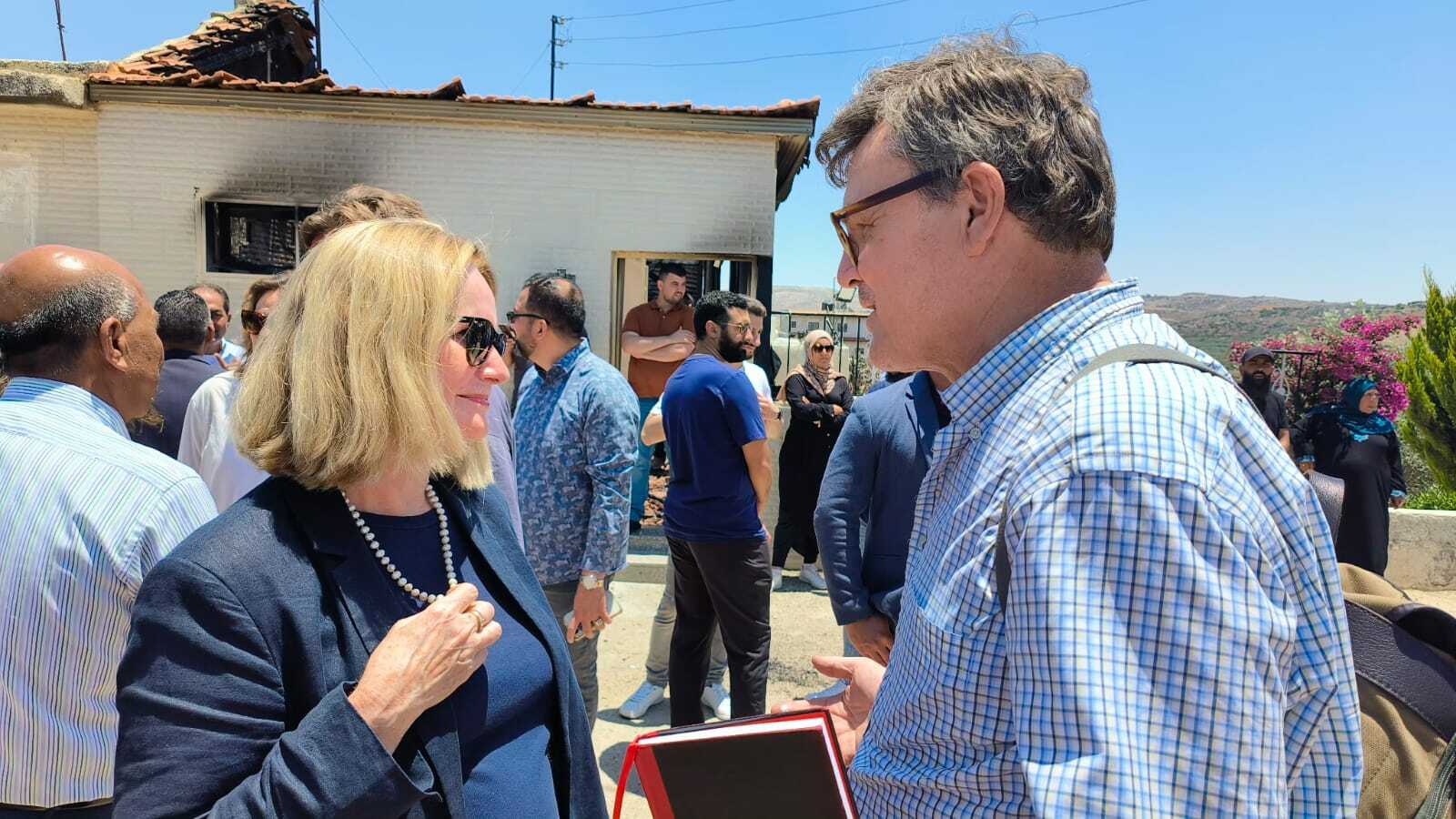
Twenty years ago, I wrote the biography of a black South African sporting genius called Basil D’Oliveira.
The book is still in print two decades later because of its ever-deeper contemporary relevance: British collaboration with South African apartheid.
Basil was a brilliant cricketer and cricket was - along with rugby football - South Africa’s national sport. But apartheid meant that he could never mix with the white players, so Basil could not play at a senior level.
He eventually escaped to England where, after a lonely struggle in unfamiliar conditions, he was picked for the national team and played his first match at Lords, then the headquarters of world cricket, in June 1966.
By coincidence, England is playing there against Australia as I write.
New MEE newsletter: Jerusalem Dispatch
Sign up to get the latest insights and analysis on Israel-Palestine, alongside Turkey Unpacked and other MEE newsletters
From that moment on, Basil became a dagger aimed at the heart of apartheid because in the winter of 1968 England was due to tour South Africa - and the selection of the "coloured" (to use the terminology of the apartheid era) South African threatened to smash the myth of white superiority.
I exposed how South African Prime Minister John Vorster plotted with the British political and sporting establishment to block D’Oliveira’s selection. Wittingly or unwittingly, Sir John Nicholls, the British ambassador to South Africa, became part of Vorster’s conspiracy.
I went to the National Archive in Kew where I read his telegrams back to London with growing horror, shame and disbelief. In simpering terms, he congratulated himself on his easy access and warm relationship with Prime Minister Vorster - at the very moment when apartheid South Africa was at its most brutal and corrupt.
In turn, Vorster played the British ambassador like a violin, using him as a willing dupe.
Britain: Israel apartheid enabler
Last Wednesday, I was vividly reminded of Sir John Nicholls when I read an interview given by the British ambassador to Israel, Neil Wigan, to the Jerusalem Post, Israel’s oldest English-speaking newspaper dating back to the days of the British mandate in the 1930s.
The Jerusalem Post headlined the interview: "UK ambassador: Ties with Israel ‘strongest they’ve ever been'."
Wigan told the JP that Palestinian issues counted far less in British-Israeli relations now than they did when he was a junior diplomat serving in Tel Aviv two decades ago.
Wigan did say that Britain was "very concerned" about settlement construction in the West Bank, but this was no more than the same ritual empty expression of disapproval from every British ambassador for decades.
They never do anything about them.
The ambassador praised the depth of Britain’s trading relationship with Israel, but there was not a single mention of the barbarous wave of settler invasions across the West Bank, often supported by the Israeli army.
Wigan politely failed to mention that these attacks are not just enabled, but actually incited, by senior members of Israeli Prime Minister Benjamin Netanyahu’s government.
Nor did Wigan refer to the fact that two famous human rights organisations, Amnesty International and Human Rights Watch - along with the Israeli human rights group B’tselem - now view Israel as an apartheid state.
Wigan was also silent on the first guiding principle of the coalition agreement formed by Netanyahu’s Likud party with its new far-right allies.
It effectively writes off any prospect of the two-state solution by stating that "the Jewish people have an exclusive and unquestionable right to all areas of the land of Israel", while promising to "advance and develop" settlements in the Occupied West Bank.
You’d have thought that Wigan must have been troubled by this statement, given that the two-state solution is official British policy, and Britain claims to oppose settlement building.
Not so.
According to the British diplomat, relations between Britain and Israel are stronger than ever! You’d have thought that Wigan might have noted that Israel is currently governed by the most racist and far-right government in the country’s 75-year history.
Not at all.
An epidemic of settler raids
Of course Wigan is simply an official. He is expressing British government policy, as proved by the fact that he sent out the same message in an article in Jewish News last April.
By hideous coincidence, Wigan’s interview with the Jerusalem Post was published on the same day as scores of settlers rampaged through the West Bank village of Turmusaya burning 30 houses and destroying 60 cars. A 27-year-old Palestinian, Omar Jibra, was shot dead.
The responsibility for British complicity with the latest wave of settler attacks lies ultimately with the decision makers: Sunak and Cleverly
When I travelled to Turmusaya to inspect the damage, I discovered that one of Wigan’s most senior colleagues, British Consul-General Diane Corner, was there too.
There appears to be an unspoken arrangement between the British consul-general, who is based in Occupied East Jerusalem, and the ambassador in Tel Aviv. When Israeli settlers attack Palestinians, Consul-General Corner issues a carefully phrased but worthless condemnation.
An empty gesture towards the Palestinians spares the British ambassador in Tel Aviv from the burden of upsetting the Israeli government.
Maybe I was unfair. Maybe I shouldn’t have turned on Corner as I spotted her walking away from a burnt-out house, and suggested that she resign.
But I’d just had a long conversation with the dead man’s uncle, Raja Jibra, who was with Omar when he was shot, then carried his dying nephew 500 yards to the nearest available ambulance.
And another conversation with a man who had braved settler assault and jumped an eight-foot wall to rescue his family from their burning house.
I suggested to Corner that it was time to drop statements condemning settler attacks and send a clear message from the international community that these attacks must carry consequences.
"What do you want me to do?" she asked. I replied that, given that Israel under Netanyahu is unable to police itself, Britain must drop its opposition to the International Criminal Court (ICC) investigation into war crimes in occupied Palestine.
Also, the latest legislation from the British government, which bans public bodies from imposing boycotts on Israeli goods, sends an abominable message. It is coming at a time when Israeli ministers are encouraging an epidemic of settler raids on Palestinian villages.
"You know who you have to speak to," replied Corner.
Though she did not spell it out, I know what she meant, and her point carries weight.
A deep moral responsibility
She is an unelected official carrying out the instructions of government ministers.
The responsibility for British complicity in the latest wave of settler attacks lies ultimately with the decision makers: Rishi Sunak and Foreign Secretary James Cleverly.
Apparently, neither of them knows that. Nor do they care that if Britain was a true friend of Israel, we would urgently insist that the far right and racist government has to change. They also probably do not even fret that British complicity with Israeli war crimes makes our statements about Ukraine look empty and insincere.
For Sunak and Cleverly, British trade deals with Israel count for far more than standing up for human rights and decency in Palestine.
When I returned to East Jerusalem, senior Israeli human rights activists told me that Corner was a decent woman. She had played a major role behind the scenes in stopping Liz Truss’s abortive plan to move the British embassy to Jerusalem.
She may honourably judge that by working behind the scene she can do more good than by leaving the stage.
Meanwhile, Ambassador Wigan has been promoted to the plum post of British ambassador to Kenya.
His career goes from strength to strength. He’s a diplomat who Sir John Nicholls, British envoy to apartheid South Africa, would have regarded with a nod of keen approbation.
The views expressed in this article belong to the author and do not necessarily reflect the editorial policy of Middle East Eye.
Middle East Eye delivers independent and unrivalled coverage and analysis of the Middle East, North Africa and beyond. To learn more about republishing this content and the associated fees, please fill out this form. More about MEE can be found here.




